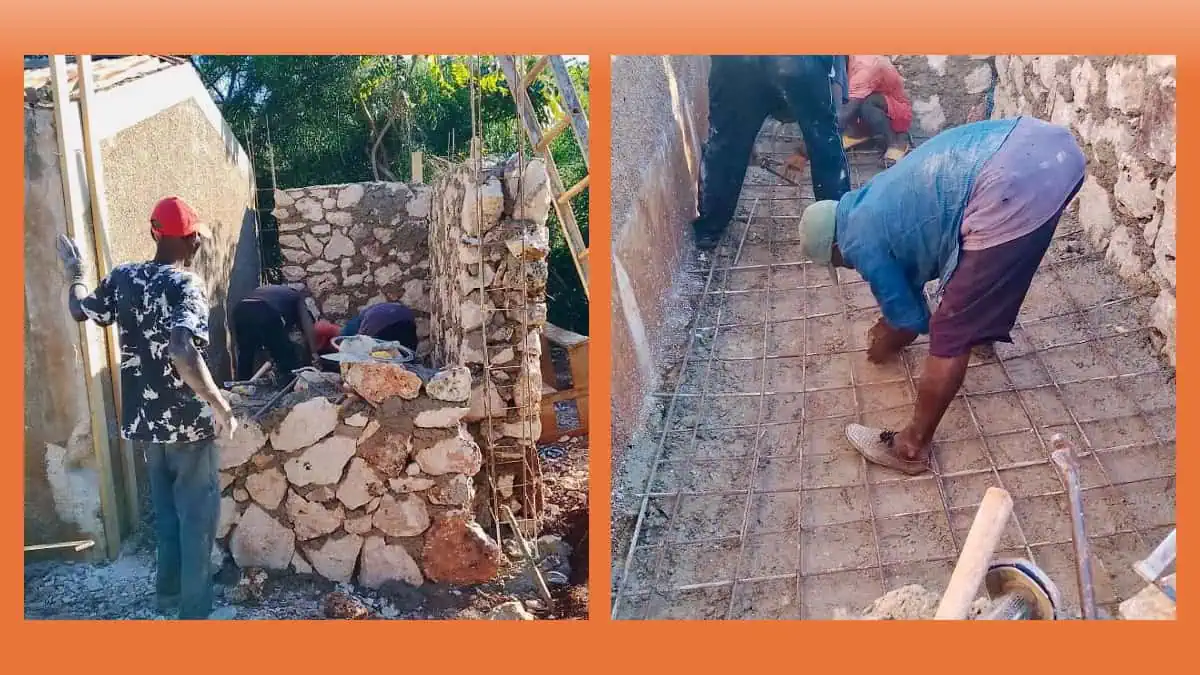
By Shelly Satran
As political tensions here rise, I have been asked a few times whether I live in a compound in Haiti. It isn’t a bad question; many government and nonprofit organizations here operate and/or live inside a compound. However, Beyond Borders and its sister organization, Limyè Lavi, have chosen to seek security in another way. Our primary security principle is to live in such a way that those we live amongst protect us. This means that the Beyond Borders and Limyè Lavi staff in Haiti don’t live walled off from the surrounding community. We all live in various, typical Haitian neighborhoods or villages. We live where we can know and be in relationship with our Haitian neighbors. We live in homes that aren’t fancy and don’t attract attention. We live in ways that mean we must be dependent on our neighbors and community.
One day in early December my husband, Kent, was starting down the road toward the city. Before he had walked five minutes, a neighbor stopped him and said, “Today’s a day for staying home. Don’t go down to the city today. There’s a political demonstration today near where you’re going.” Kent returned home.
We had never asked this man to look out for us or to warn us of potentially tense situations. Kent hadn’t first approached him on the road inquiring about conditions in the city. The man just felt it was his neighborly duty to let us know the situation.
However, there are a few friends who live nearby that we have asked to let us know if there are demonstrations or violence in the city. So on several occasions, they have come by our house in the morning to inform us of the latest radio news about the political unrest and its manifestations (we both still find it difficult to understand staticky Creole radio ourselves). Along with imparting the news, our friends often advise us whether we should stay home that day, avoid a certain street or neighborhood, or go about our day as usual. We have never not followed their advice when they suggest we spend a day at home or avoid a certain neighborhood.
As I write this, we are staying overnight at the Limyè Lavi office in Port-au-Prince while our house is getting painted. The office is a good 45 minutes and several communities away from where we live. Nevertheless, one of our neighbors called the office yesterday to let us know a demonstration was taking place in between the office and our neighborhood. “Don’t come up the mountain today,” he said. We didn’t.
My husband I love our simple, tin-roofed home in the mountains outside of Port-au-Prince. We like our lifestyle that means daily interactions with friends and neighbors who so often enrich our lives. So until the recent unrest in Haiti, I hadn’t thought much about what our living in a simple unguarded, unwalled house meant. Now that security and political tension is part of everyone’s daily conversations, I haven’t yet wished we lived a compound, though I have wished for a home with phone lines or Internet to keep in touch with the outside world on days we are homebound due to the unrest.
The truth is that no form of security is one hundred percent sure—neither walls nor strong community can protect against certain dangers. But for the moment I am grateful for friends and neighbors who have given us a sense of protection (and community) that no walls could.